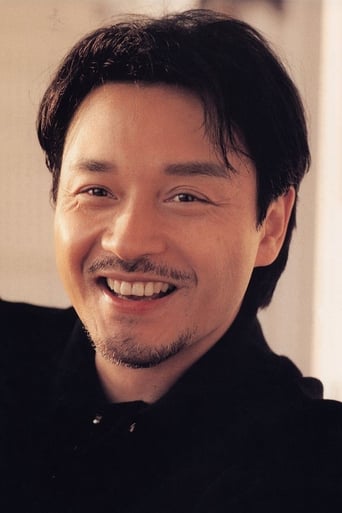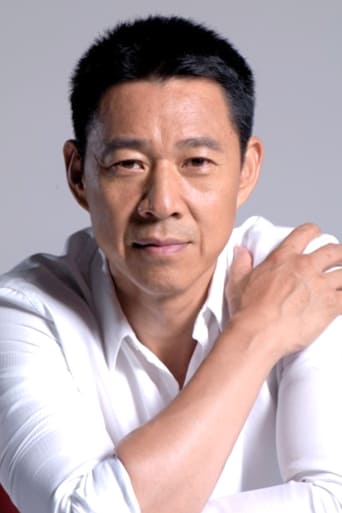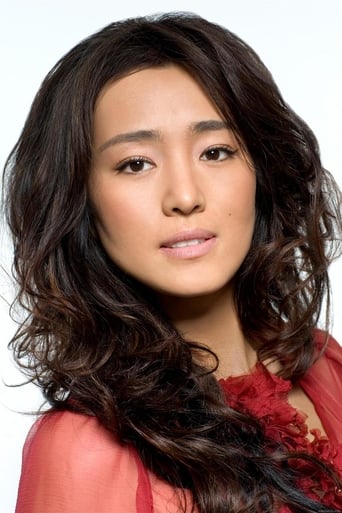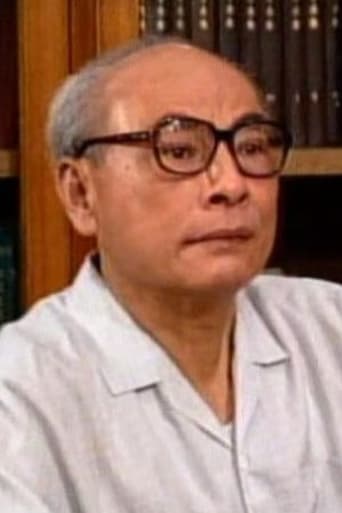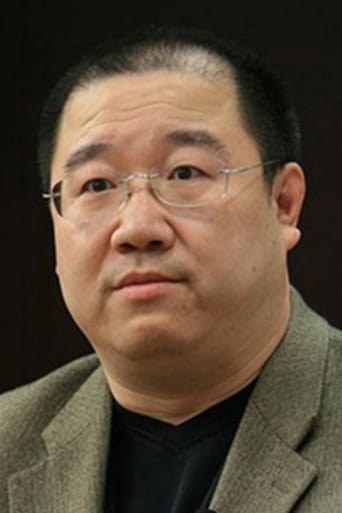rsantibanezab
I had an enormous expectation at moment I seat on my couch and put the movie in my TV, and for my pleasure, the film doesn't disappointed me. I want to speak about four element who, in my opinion, make this film a truly masterpiece. 1. The beautiful photography and the perfect control of the time and the sequence of scenes for part of the director. Nothing is left, nothing is missing. The almost 3 hours what does this last, I almost didn't felt them. 2. The script work. Beautiful dialogues, natural link between one scene and another, and a very credible story. In no one part I thought "this is not possible". A very important achievement for a very ambitious movie like this. 3. The interpretations was magisterial, specially Leslie Cheung (Daoyi) and Gong Li (Juxian). All the time I felt I was looking the characters and I never saw the actor behind them. 4. The movie no only was about the opera, was a kind of opera. I'm a little familiar with the Chinese aesthetic, and this movie remember me the classic literature and the Beijing Opera progression. At the end the film become more symbolic and emotional, just like the climax of the classical Chinese works. This movie capture the Chinese soul, so we don't need to put names like "shakespearean" or make the reference of any other western artist, because the principal inspiration for this movie, in my point of view, is deeply Chinese. This movie is the Taoist ductility of the Chinese art, who are in constantly change and mutation.Anyone who loves the cinema, the history or the high art must see this movie.
lasttimeisaw
A re-visit of this probably, most accoladed Chinese film in the 20th century, Canne's Palme d'or winner (an honor deservingly shared with Jane Campion's THE PIANO 1993), two Oscar nominations, and other awards galore. Directed by Chen Kaige, the trailblazer of "The Fifth Generation" directors (along with Zhang Yimou) in China, FAREWELL MY CONCUBINE has remained as his most intrepid and accomplished work ever, it is a chef-d'œuvre goes right down in the annals of the entire history of cinema.The full version runs about 170 minutes, and spans over 50 years, it traverses through the turmoil times of contemporary China. Starting from 1924, in the Republic of China (1912-1949), a 9-year- old boy Douzi (Ma, Yin in different ages) is left by his prostitute mother (Jiang, in a devilish showy cameo) to a Peking Opera troupe, run by the rigorous Master Guan (Lv), under whose extremely strict coaching measures, where physical punishment is meted out on a daily base, Douzi is trained to play female roles due to his feminine appearance, and strikes an intimate affinity with a senior fellow apprentice Shitou (Fei and Zhao). An agonizing process of Douzi's dragooned shifting from cisgender to trans-gender paves the way for his success in the field, but also foreshadows his tragedy where he can no longer retract himself from his female character, Yuji, whom he plays in the traditional play "Farewell My Concubine", she is the loyal concubine of King Xiang Yu, played by Shitou. Projecting him and Shitou as Yuji and Xiang Yu, Douzi loses his grasp of the fine line between reality and performance, but Shitou isn't.Time jumps to the Japanese invasion in the 30s, when Dieyi (literally means butterfly's dress, the stage name of adult Douzi, Cheung) and Xiaolou (means small pavilion, the stage name of Shitou, Zhang) have become star opera singers, mostly for their collaboration of "Farewell My Concubine". A crack occurs, when a headline prostitute Juxian (Gong) contrives her way to marry Xiaolou as an opt-out from the whorehouse, the inseparability between Yuji and her King is deadly breached, Dieyi feels betrayed, but the show must go on. Through the rapid-changing political landscape of its time, from Japanese, Kumingtang, to the Communist Party, which established the PRC in 1949, until the Cultural Revolution in the late 60s, the trio experiences a string of tumultuous happenings: miscarriage, opium addiction, imprisonment, trial for treason, disciple betrayal, etc., which Chen dauntlessly brings about with no trepidation of the harsh censorship of the government (the film was denied a theatrical release in mainland China, for obvious reasons), and reach its apex in a heart-rending criticism and denunciation meeting encircled by the Red Guards, where Dieyi searingly lashes out his disillusion, spite and wrath, once and for all, it finishes with an abrupt but poignant suicide. Then, after out of contact over a decade long, the two brothers finally reunite on the stage for their grand finale with a highly cinematic coda.This is Hong Kong legendary star, Leslie Cheung's most audacious and dazzling endeavor, whose personal back-story (as a closeted gay man, he committed suicide on the April Fool's Day 2003 because of depression, at the age of 46) in retrospective makes his brilliant impersonation of Dieyi more plaintive and heart-breaking to watch, his impeccable semblance of a woman in full cosmetics is deceptively alluring, yet he is far from being a pretty face, his subtle facial impressions, gestures, line-delivery and body language all precisely hit the perfect note of a soul desperately clinging to his illusion, driven mad by jealousy, deeply disheartened and traumatized by the milieu.Zhang Fengyi's Xiaolou, wonderfully balances Dieyi's delicacy with his macho superiority and bluntness, which is tune with the strategy to intentionally sidestep the elephant-in-the-room in their relationship, and makes the case more like a meta-identity confusion tale than a taboo- divulging melodrama, homo-erotic tension has been mostly taken out, whereas vignette between Douzi and a senior eunuch is not for the faint-hearted. Xiaolou is only the king in the opera, back to reality, his virility is a false front, and he is ready to snitch on everyone when difficult time approaches, but we cannot blame him, he is no hero, but an ordinary man tries to save his life, most of us would do the same, right?Gong Li, the goddess of contemporary Chinese cinema, grabs a meaty supporting role here, becomes the unwelcome third wheel among the two men, her Juxian, is a woman knows what she wants and never hesitates to get it, she is tough, manipulating but not vicious, one of the most poignant moments is when she and Dieyi establishes a semi-mother-and-son bond during the latter's cold turkey period, that is the only time, hostility caves in to warmth and affections, yet it is evanescent, her only mistake is that she puts all her stakes on a wrong man and sticks to him afterward, among all the main characters, she is the most ambiguous one but Gong's expertise makes her the most sympathetic one too.Gu Changwei's Oscar-nominated cinematography, the exotic atmosphere around Peking opera scenes and a distinctively oriental score by Zhao Jiping, even popular comedian Ge You's subdued performance in a drama role, one can ramble on and on, but in the end of the day, it needs to be seen by more audience, particular young Chinese filmmakers, simply to show the world that Chinese cinema can produce masterpieces despite that it has been stuck in the dry spell for too long, with an ostensibly booming market congested with utterly inferior commodities.


